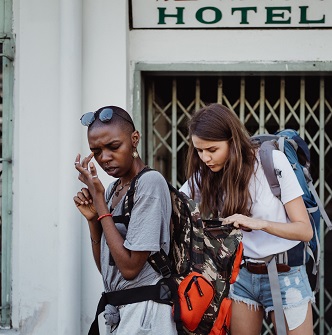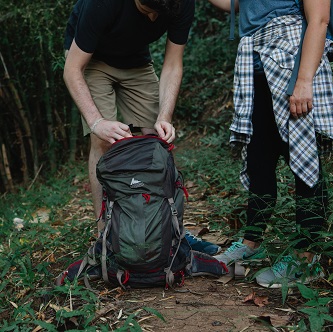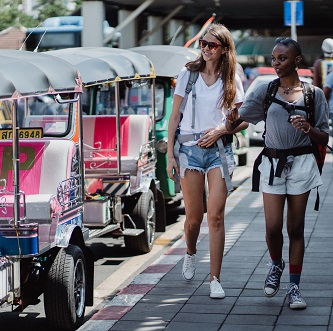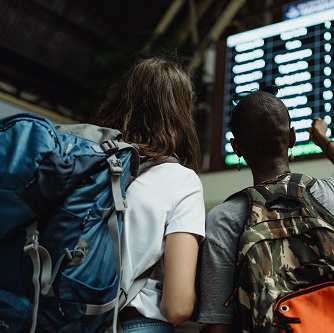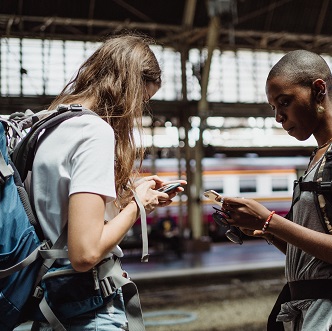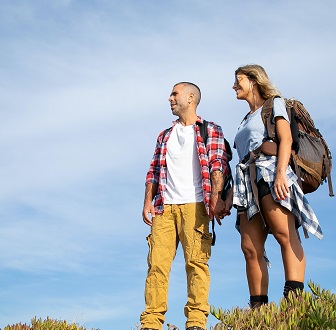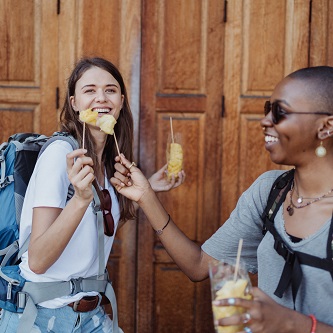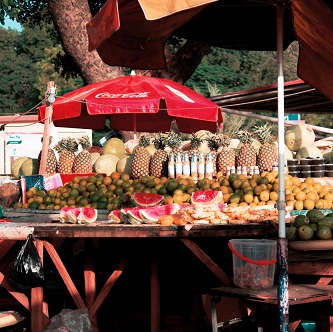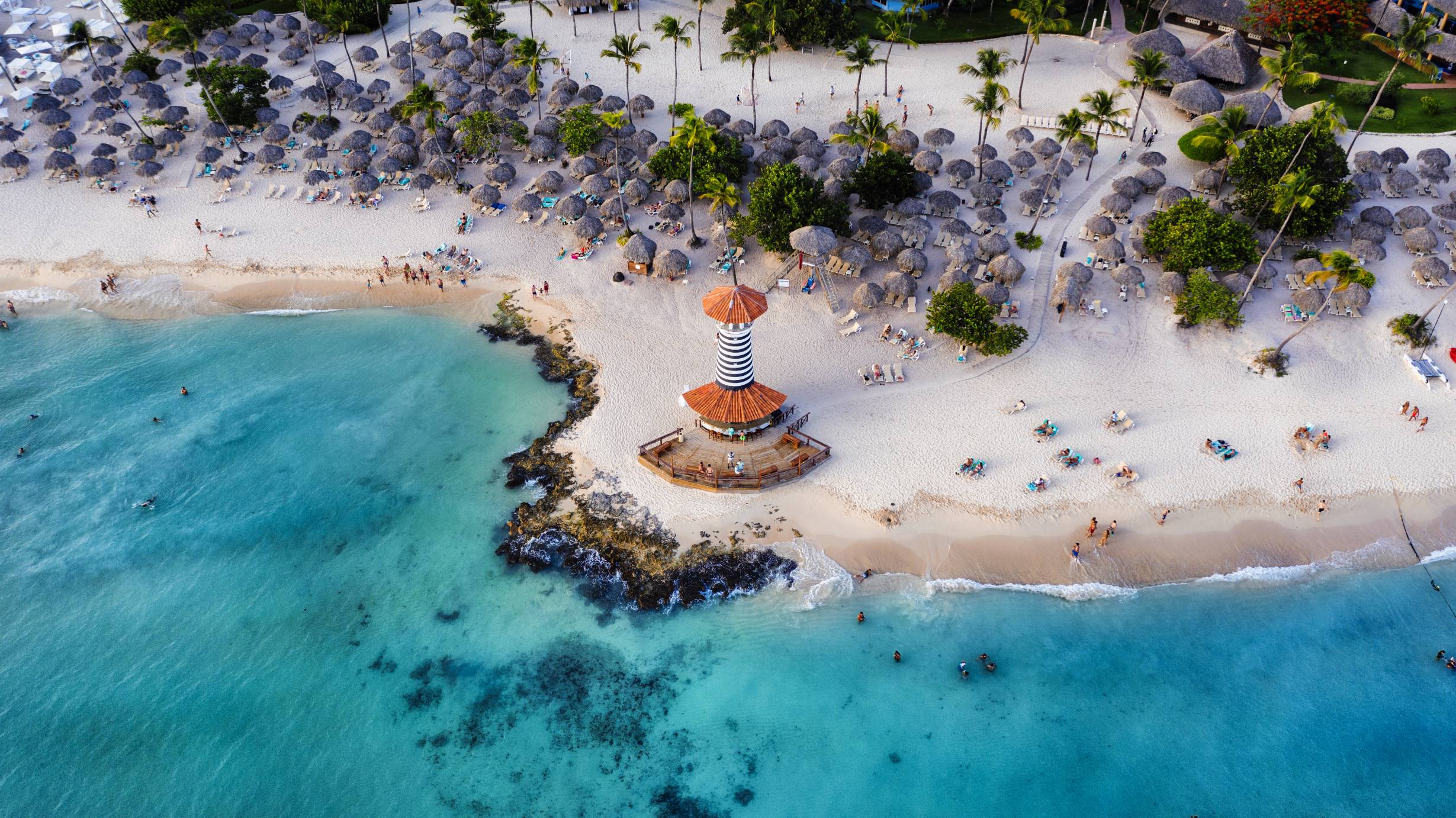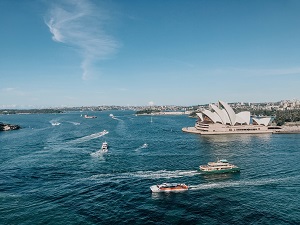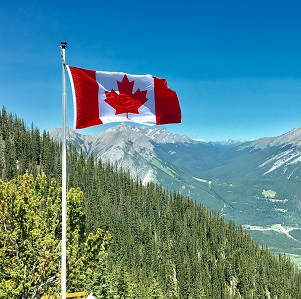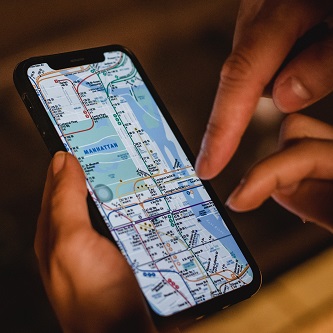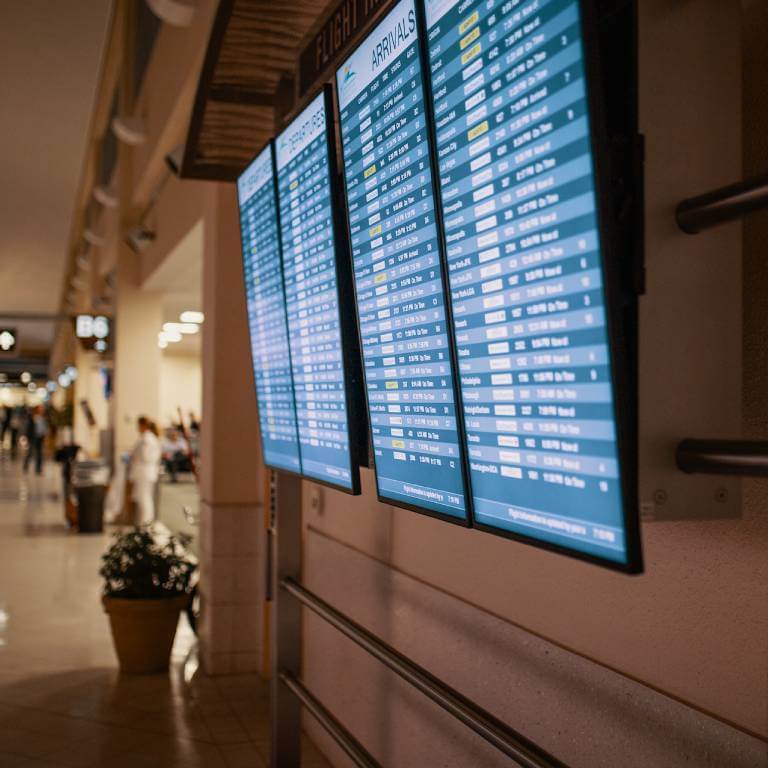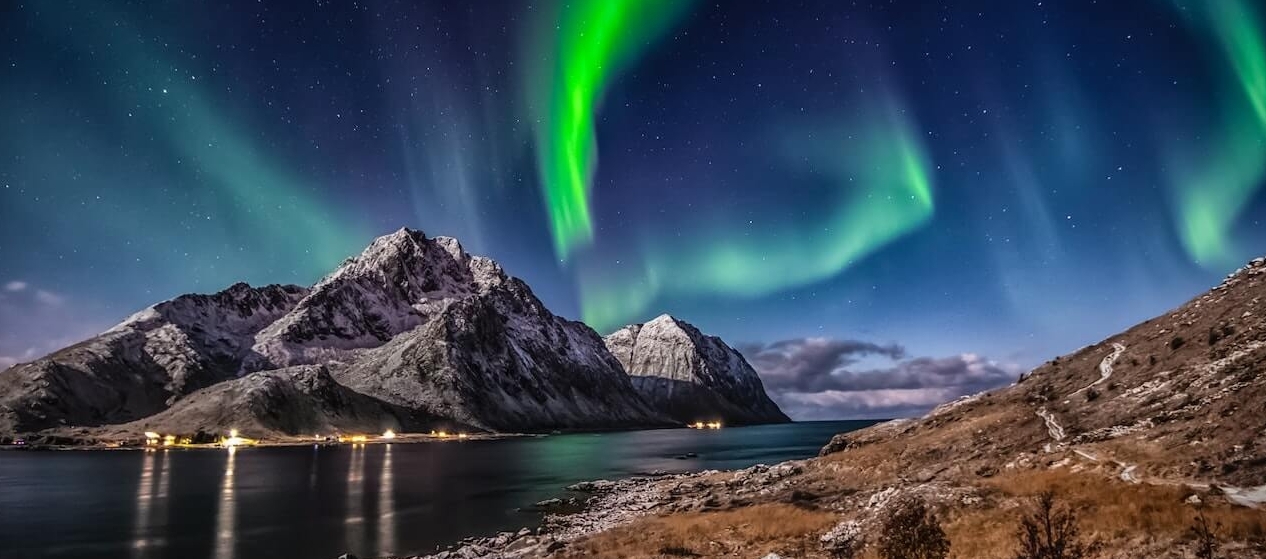Backpack your way across the world on a solo trip, group adventure or honeymoon of dreams. However, before you go, make sure you’ve got these safety tips noted down.
We know that being adventurous and spontaneous on your travels is what makes the time so exciting, but that doesn’t mean you shouldn’t prepare, plan ahead and take on these travel tips to keep you safe whilst you’re backpacking.
First and foremost, one of the most important things to have in your backpack is insurance. Backpacker Travel Insurance can provide you with peace of mind knowing that if accidents do happen when you’re abroad you’ll be covered. Everything from medical expenses including medical emergencies, delays, cancellations, to lost or stolen property.
Allianz Assistance Travel Insurance covers you for many unforeseen costs that might be incurred on your travels. And on top of that our cover also provides you with:
- Access to HealthHero - our 24/7 video or telephone GP helpline based in the UK.*
- Specific COVID-19 cover for cancellations and medical treatment abroad.
- A global insurance provider to protect you and loved ones health when travelling in the UK, Europe and Worldwide.
Get yourself insured today – the earlier the better because insurance covers you right from the moment you purchase it. So, if you’re flights, transfers or accommodation gets cancelled our cover may be able to save you some money.
*For video consultations, time restrictions apply and UK Bank Holidays are excluded.
It’s a simple travel safety tip, but doing your research is essential if you’re wanting to stay safe whilst backpacking.
When visiting some countries, there are certain requirements you need to be aware of when entering. For example, since 2010 it has been a requirement for all visitors entering Cuba to bring proof that they have travel insurance. The Cuban border force specifically want to see that you have insurance which covers medical expenses, emergency medical treatment, hospitalisation and repatriation.
It’s important to research the countries you’re travelling to so that on arrival everything is in order with your documentation and you can make your entrance swiftly without being questioned too intensely.
Other types of research you should be doing is on your accommodation, transport (mentioned in more detail below) and activities.
Packing for your backpacking trip can take a bit of time to do with lists on what you should pack, what you should leave at home and even which backpack you should purchase. There are a lot of things to consider but for safety reasons, there are a few packing tips that will make a big difference:
- Pack light – not an essential safety tip but packing light does mean that you can easily go from one location to the other with not much hassle. Try to only pack what’s necessary and leave the rest at home.
- Use a secure backpack – choosing a backpack depends ideally on what kind of packer you are. You might want access to all your items all at once, you might have an order for everything so compartments work best or you might be focusing on only taking the essentials and figuring everything else out when you get there.
- Keep valuables close to you – it might be a good idea to get a bum bag (or money belt) that allows you to keep your valuables close to you with easy access for you but no one else. It’s much safer to have your passport, wallet and phone on your person rather than in an easily accessible backpack pocket.
- Pack the key items – ear plugs (for noise cancelling if you’re staying in a hostel), flip-flops (for showering in those communal bathrooms), padlock (for keeping luggage secured), plastic laundry bags (to store dirty clothing before you get chance to wash it).
Once all your valuables are secured, the best way to keep yourself safe when you’re travelling is for you to be as healthy as possible. That means focusing on eating and drinking well so you can function everyday whilst you’re scaling mountains, traversing rainforest trails or exploring hidden gems.
Keeping your hydration topped up is a great way to keep yourself healthy whilst on your travels. It may be difficult in certain locations where there might not be access to running, clean, drinking water – but make sure to buy bottled water where tap water isn’t hygienic enough to drink, top up all your bottled water whenever you get to a source you trust and regularly remember to drink (even if that means setting an alarm on your phone).
If you’re backpacking away from towns and cities in more rural locations then make sure to pack enough water for your whole excursion as running low or running out completely can be dangerous.
When you’re travelling within different countries and across different locations it’s always a good idea to know which mode of transport is safest in that particular area. Understanding this is crucial for safety as making the wrong decision about how to travel to certain areas can sometimes lead to problems. Avoid, if you can, using unlicensed and unofficial transport options as these won’t have to adhere to any safety standards..
Most countries have many buses, trains or taxis that are legitimate and available for you to use. You can check their safety standards using review sites or government websites that aim to provide more guidance.
If something happens and you lose your phone, it’s always good to have a list of numbers on hand that you can ring to help you out. Whichever country you’re in, make sure you know the number to call for the emergency services, your travel insurance company helpline and your emergency contact.
This is a simple safety precaution but could save you from having to spend hours trying to contact someone for assistance. Have a list written down on a piece of paper and on all of your devices in case any of them get stolen.
Even if this just means sending your location or end destination to your nearest and dearest, it can be a great way to stay safe whilst backpacking.
There are some great apps out there including ‘Find a Friend’ that allow you to share your location with multiple contacts so they can keep an eye on your whereabouts whether that's your destination or journey to the destination.
It will give those loved ones at home peace of mind that you’re heading in the right direction, but is also a great idea if you’re going off the beaten track because it should be able to give your loved ones a direct view into whereabouts you are at that moment. This does however depend on connectivity so we’d always advise giving your loved ones an itinerary or as close as you can in terms of which locations you’ll be staying in so they know roughly which direction you’re heading.
When it comes to reaching loved ones whilst away, it’s always a good idea to check in when you can. However, using public Wi-Fi can sometimes be risky with connections being quite unstable.
Public Wi-Fi can open up your devices to unsecure networks and bugs that can be very damaging. Not only are there chances that your devices can get hacked, there is also the uncertainty of knowing whether your data is actually being protected or you’re opening yourself up to some major security risks. Where possible use your own data or stick to networks (including private Wi-Fi connections/VPNs) that you can trust.
On most devices you should get warning when your phone or tablet thinks that the connection you’re using is unsafe or you can download certain security apps that highlight any risks that are avoidable.
Thinking about what you’re going to eat and drink is not only a great way to save you money but it will keep you from eating in some sketchy locations. Doing your research before you eat at a restaurant or drink in a bar means you’ll be able to find some amazing places to enjoy local cuisine plus you’ll steer clear of any places that might end up making you ill.
Here are just a few things to do to keep you safe when choosing where to eat whilst backpacking:
- Use review sites – reading reviews like those on Trip Advisor is a great place to start. Find out what people who have visited the restaurant are saying and even see pictures of menus or food.
- Choose popular places – using these reviews you can also find some of the most popular places in that location. Knowing that, you’ll be safer eating in a location where lots of different people have said it’s a good idea.
- Avoid drinking tap water, ice in your drinks or fruit and veg – it sounds like the opposite advice to your normal health and nutrition experts but in some countries water can be badly contaminated and cause illness if consumed.



